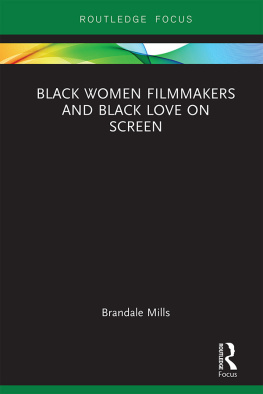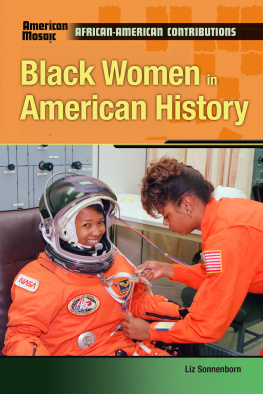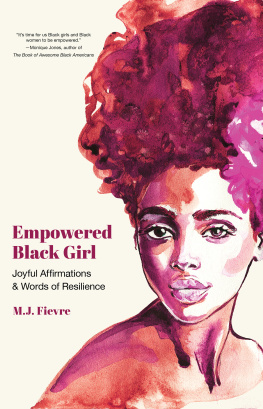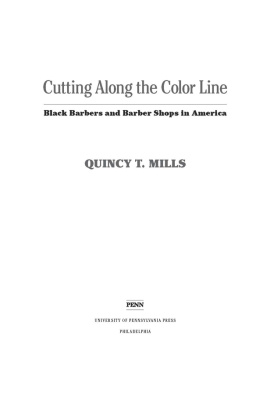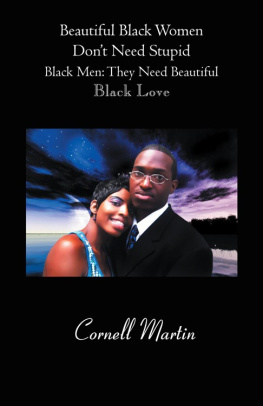Black Women Filmmakers and Black Love on Screen
This book offers a thorough analysis of how romantic love between Black men and women (referred to here as Black Love) is portrayed in Hollywood films, specifically from the perspective of Black female filmmakers. Using historical and contemporary images of Black female representation in the media as a foundation, the main themes of this text focus on the male gazes influence on Hollywood narratives, the necessity for the Black female perspective in Hollywood, and that perspectives influence on ideologies and narratives.
Brandale Mills, PhD, is a faculty member at Central New Mexico Community College in the Communications Department.
Routledge Transformations in Race and Media
Series Editors: Robin R. Means Coleman University of Michigan, Ann Arbor
Charlton D. McIlwain New York University
Interpreting Tyler Perry
Perspectives on Race, Class, Gender, and Sexuality
Edited by Jamel Santa Cruze Bell and Ronald L. Jackson II
Black Celebrity, Racial Politics, and the Press
Framing Dissent
Sarah J. Jackson
The Cultural Politics of Colorblind TV Casting
Kristen J. Warner
The Myth of Post-Racialism in Television News
Libby Lewis
Representations of Black Women in the Media
The Damnation of Black Womanhood
Marquita Marie Gammage
Race and Contention in 21st Century U.S. Media
Edited by Jason A. Smith and Bhoomi K. Thakore
Race, Gender, and Citizenship in the African Diaspora
Travelling Blackness
Manoucheka Celeste
Media Across the African Diaspora
Content, Audiences, and Global Influence
Edited by Omotayo O. Banjo
Black Women Filmmakers and Black Love on Screen
Brandale Mills
First published 2019
by Routledge
52 Vanderbilt Avenue, New York, NY 10017
and by Routledge
2 Park Square, Milton Park, Abingdon, Oxon OX14 4RN
Routledge is an imprint of the Taylor & Francis Group, an informa business
2019 Taylor & Francis
The right of Brandale Mills to be identified as author of this work has been asserted by him in accordance with sections 77 and 78 of the Copyright, Designs and Patents Act 1988.
All rights reserved. No part of this book may be reprinted or reproduced or utilised in any form or by any electronic, mechanical, or other means, now known or hereafter invented, including photocopying and recording, or in any information storage or retrieval system, without permission in writing from the publishers.
Trademark notice: Product or corporate names may be trademarks or registered trademarks, and are used only for identification and explanation without intent to infringe.
Library of Congress Cataloging-in-Publication Data
CIP data has been applied for.
ISBN: 978-1-138-60295-3 (hbk)
ISBN: 978-0-429-46935-0 (ebk)
Typeset in Sabon
by codeMantra
To the love of my life thank you for helping me experience the true essence of Black Love.
First and foremost, all the honor and glory goes to God, for without Him, I am nothing.
I would like to acknowledge and thank my dissertation committee for their guidance and support throughout this journey. Your support, suggestions, feedback and criticism have pushed me further than I knew I could go intellectually and academically which helped lay the foundation for this text.
Thank you to the hardest-working (finessin) cohort Howard Universitys CCMS Department has seen. I am forever grateful to have experienced this journey with such an amazing group of like-minded individuals. You all inspire me in different ways, and were destined to change the world. I am also grateful to my Howard colleagues who shared their experiences and insight to help make this journey a bit easier; I will be forever grateful for your embrace and advice.
To The Seven: you all knew me before I had dreams of changing the world. Thanks for your unwavering love, support, laughs, prayers and encouragement. You all have pushed me and motivated me continuously to be the best version of myself, and it is truly a blessing to call such an amazing group of women my besties.
To my dear friend, Allison: your tenacity is truly inspiring. You are the epitome of a superwoman and Im so blessed to have you as a friend. My wonderful line sisters: I thank God for the gift of sisterhood. Im so proud of each of you, and Im glad to have you along with me on this journey.
Riley, thank you for always being my captive audience and listening ear. Cox, thank you for your unconditional love and for never letting me take myself too seriously. Although we were 1,871 miles apart while I was writing this book, your support and love surrounds me and inspires me to do wonderfully awesome things. Even if you dont really care about coding, themes and Black feminism, thank you for acting like you do.
To my mother and sister, thank you for your encouraging words and support. It is the foundation you gave me that allowed me to chase my dreams and change the world. Finally, I would like to thank all of the Black women in Hollywood both in front of the camera and behind the scenes. It is inspiring to a glimpse of my life represented through your work. Thank you for showing me and the world the diversity of a Black woman.
Overview
I am a chronic lover of love. My movie collection is a combination of romantic and comedies and classic love stories, all of which have served as a reference point in discussions about love throughout my adulthood. In these films, there are some relationships that I despise, some that I love, some that baffle me, many that I identify with and a few that I envy which exemplify my definition of true Black Love. Although this phrase has trended on social media and popular culture and even served as the title for a cable network television show, there has never been a tangible definition of what exactly Black Love embodies. Cultural critic and scholar bell hooks described Black Love as something that is exceptional and stemming from a place of struggle that is unique to the Black Americans experience, yet Blacks are often depicted as sexual, angry and unloving in Hollywood representations (hooks, 2001).
Currently in mainstream Hollywood, romantic movies are more foolish than fun, and their content lacks sincerity and depth and the absence of Black romance in movies creates a void. Black relationships should be visible enough to be ordinary, and not always have clichd, typical endings (Harris, 2016). The problem is not the lack of Black romances being written, but there are few Blacks in Hollywood that hold positions to green light a movie; Hollywood will only invest in Black films that White executives believe are sure moneymakers (Ivermen, 1997), despite the popularity of romance and love genres. hooks (2001) wrote, if love is not present in our imagination, it will not be there in our lives (p. 37); in other words, if Black audience members do not see positive images or romantic relationships in the media they consume, their lived experiences will reflect those negative depictions. She adds that gender often shapes ones perspective and this patriarchal ideology becomes particularly damaging for Black female audiences because of its impact on the systematic degradation of the African-American family structure. Black female filmmakers limited voice could potentially shape the narratives they create, impacting the representation and identity construction of Black women.

